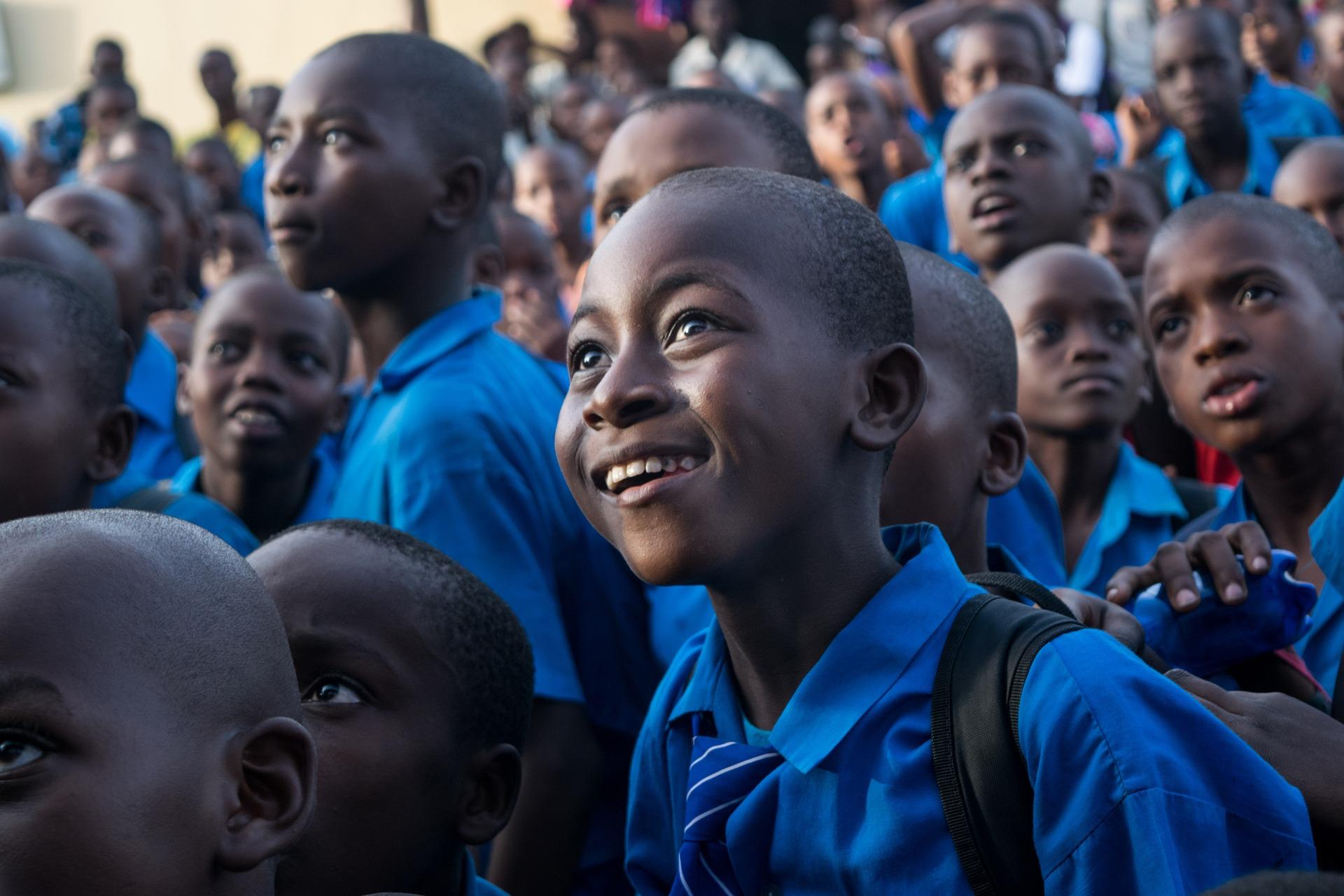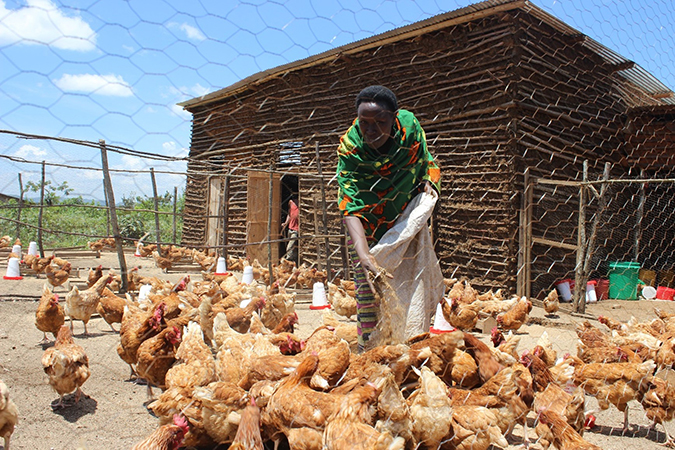Cameroon: May 2024: The Guardian Post
”At the end of a visit to Government High School, GBHS, Mimboman in Yaounde, senior superintendent, F.M.W, explained that the visit was part of actions to showcase the activities and role of CSESU (schools and Universities Security Company) in the fight against drug consumption and violence in schools. During the visit, the police advised the students that consumption of drugs has physical and mental consequences on their health and could also jeopardise their future. While teaching them that drug consumption provokes violence, the police officers warned the students to stay away from bad friends, remain disciplined and focus on their studies as future leaders of tomorrow. One of the highpoints was a search of one of the classroom, during which objects such as needles, a set of playing cards, and a condom were found. Owners were taken for questioning at the CSESU (Compagnie de Sécurisation des Établissements Scolaires et Universitaires) headquarters and made to sign and undertaking a good moral. Speaking to the press at the end of the exercise, the commander of the Special Unit reiterated that their mission is to fight and eradicate the consumption of drug and violence in the school milieu.”
The situation therefore requires firm measures, in order to encourage young people in general and young adolescents in particular, not to adopt or no longer reproduce the immoral acts that they see around them, and whose choice to adopt or reproduce after having been influenced by people of bad morals in particular, denotes a vulnerability that exposes them to the adoption of a set of vices and other aggressive acts in total contradiction with the teachings they received in conventional places, thanks to the work of teachers who must not be the only ones to assume this responsibility of producing quality human capital of great use for a society where the particularly worrying behaviours of young people in particular, must benefit from the attention of all those who want to contribute to this project which is in fact a civic duty.
In 2007, a year where I was in what we call lower sixth in the English subsystem, I noticed that new generations of the school where I was, were more disrespectful than those which preceded them. One day I said to a very turbulent student of from two that if he continues to be disrespectful, the next time, I would report his bad behaviour to a competent authority of the school in disciplinary matters. When I said it, that student started to encourage me to go by showing me the direction of the office with his finger: "What do you think he's going to do to me?" he said.
We went then to the general supervisor office, and I reported the situation to him. He said to that child to be careful! And what the authority said was what I wanted because when those of my generation were in from II and even in lower sixth, when a teacher asked us to be careful, we always took these words seriously. But it was not the case with that child. When we cross the door of the office to go outside, he said to me: "Did you see? What did he do to me?" I didn't stop there! I tried to find out if he had a brother or sister in the school, or someone who knew his parents because his behaviour seemed very worrying to me. I found that he had a brother who was a student in the same school, in from three. He told me where they lived, and I decided to go and meet his parents one day. The day I went there, his father was not there. So I explained the reason of my presence to his mother. That day, he didn't say a word! He was calm! His mother told Him to stop being disrespectful. Had he taken into account what she had told him? I always hoped so because he was very stubborn.
Some young people have difficulty with the respect of authorities, in addition to consuming drugs and allowing themselves to take and make disconcerting photos and videos in places where they are supposed to receive teachings provided in order to bring them not to adopt that kind of behaviours. Some supervisors no longer even know what to do in the face of these cases of indiscipline. You say to children not to come to school with drugs and other prohibited objects, they respond negatively through a series of seizures that demonstrate an unconsciousness that mocks the universal values advocated in places of learning. Respect, obedience and the love of a job well done are flouted by some young people who prefer aggressiveness, disobedience and cheating.
For Ezeogu Simone Thierry and Konfo Tcholong Clémence Idriss who are respectively psycriminology, psychotraumatology for the first, and psychopathology and clinical psychology for the second,
“In Cameroon, violence among young people in general and in school in particular has become a growing problem over the years. It is constant, deadly and a daily occurrence in almost all public and private schools. In both urban and rural areas. On the evening of 5 September 2023 (the second day of classes after the school holidays), numerous videos of pupils brawling made the rounds of social networks. This shows the scale of the problem in schools. Eradicating violence in school is therefore of paramount importance, and must involve effective prevention. With this in mind, a number of civil society organisations, such as the Association Santé et Bien-être (ASBEC), are committed to combatting violence in schools. This is achieve through prevention.”
This means that, this is a particular problem that requires the contribution of every member of a society where the reality of a set of very worrying facts in particular are calls to make more efforts to bring the youngest in particular to adopt responsible behaviours, not only in the most well-known places of learning, but also in all other places, because the efforts that are made at the school level must be translated into actions in other places, and even improve thanks to other actors whose contribution is necessary in this cycle of training and learning which is intended to produce individuals of great use for a society threatened by a set of excesses whose prevalence in society must be further reduced thanks to a set of responsible commitments and in particular those of parents. Their contribution is particularly important because according to psychologists, stressful situations within the family framework can lead children to be aggressive at school. This is just one of the numerous situations that often lead some young children to consume alcohol and drugs without their parents' knowledge. Hence the importance of making more young adolescents in particular more aware of the dangers they face by adopting illusory means that appear good, but are very disastrous in the lives of those who use them, their families, and the society in general, where adopting false means to escape and succeed always has terrible drawbacks because, nothing good is gained by taking one's own life prematurely to avoid facing the judgments of a society that can itself lead young people to make tragic choices. Likewise, nothing good is gained by being aggressive or engaging in other immoral acts that have no place in places of learning intended to shape quality people in a society that has its good and bad sides due to the quality of the consciences which live there. Moreover, it is important to identify and prevent impulsive behaviours of children specially in learning places. And whatever the reasons of the problems, a teacher must never lose sight of the fact that a classroom is a learning space where anything can happen. Students are more prone to uncontrolled reactions, partly due to their immaturity. Children are more likely to assault one of their teachers. The teacher, who can also be a parent in addition to be an educator, must always keep on his mind that the learners and students under his responsibility deserve special attention, which includes strict respect for the freedoms of each individual. It is therefore up to the teacher to avoid certain scenes, not out of fear, but out of a desire to prevent potentially fatal acts.
 Aware of their responsibilities, parents in particular do everything possible depending on their means to ensure that their children receive a quality education because they are aware of the fact that school is the foundation of all true social success conditioned by the refusal to adopt actions likely to reduce to nothing long years of effort.
Aware of their responsibilities, parents in particular do everything possible depending on their means to ensure that their children receive a quality education because they are aware of the fact that school is the foundation of all true social success conditioned by the refusal to adopt actions likely to reduce to nothing long years of effort.




/cloudfront-us-east-2.images.arcpublishing.com/reuters/2TXAKDFYJRPL5K3UU5BP5JQOE4.jpg)